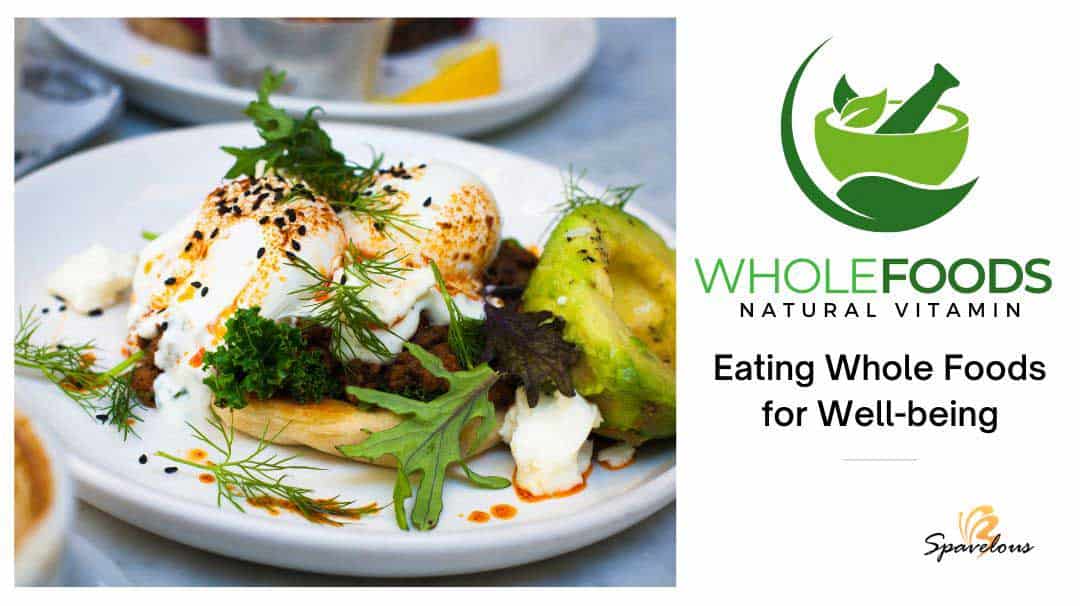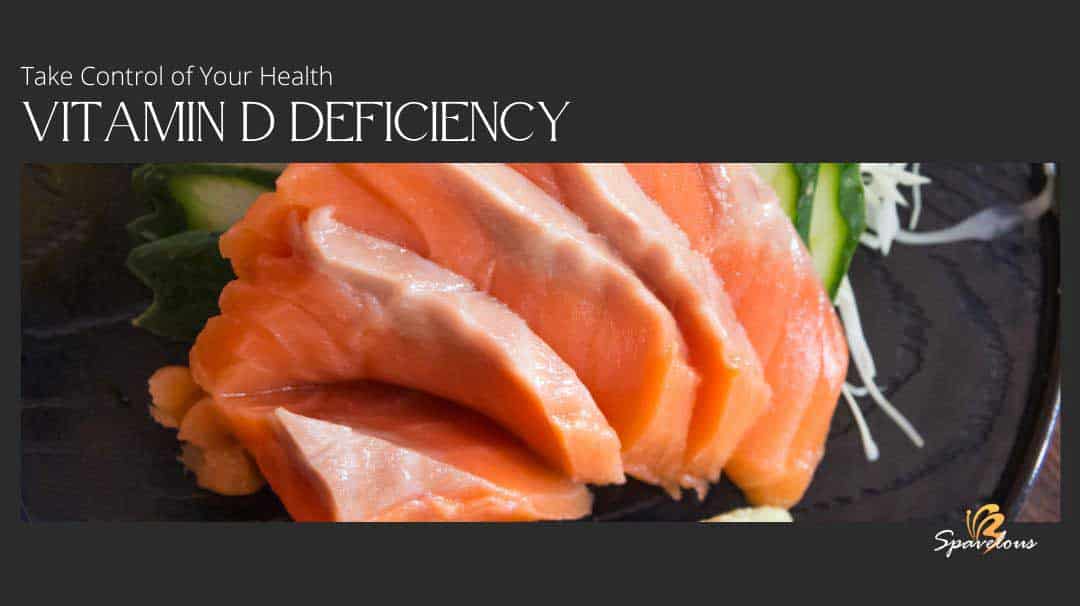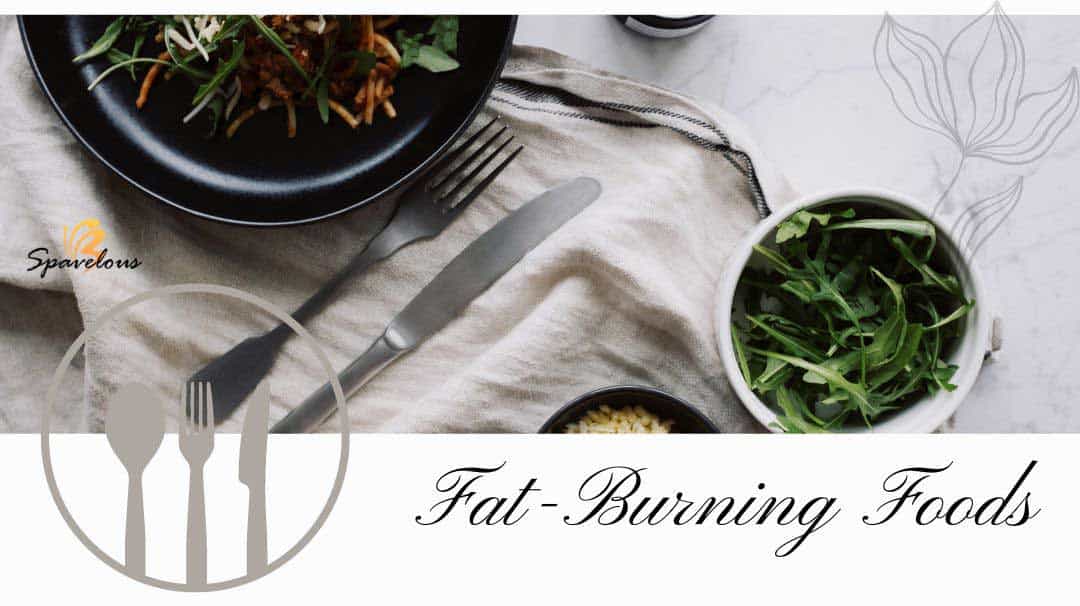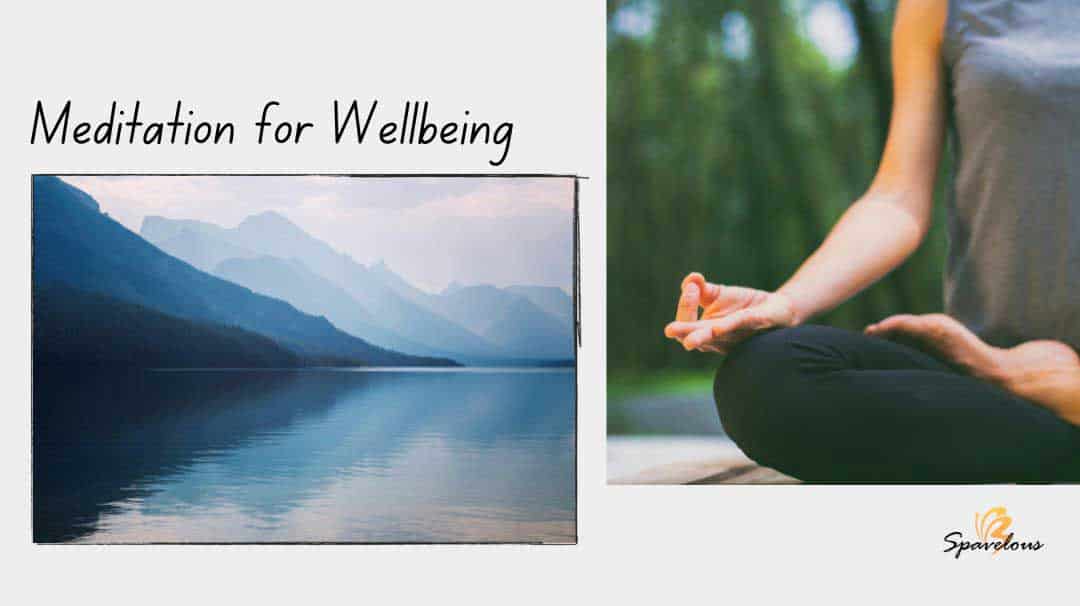Discover the power of natural vitamins and unlock the key to optimal health! In this eye-opening article, you’ll learn why whole foods are the best source of essential nutrients and how they offer benefits that synthetic supplements can’t match.
Explore the concept of food synergy, find out which vitamin-rich foods to include in your diet, and gain practical tips for reading food labels and making smart choices.
Discover how a balanced lifestyle, including exercise, quality sleep, stress management, and safe sun exposure, can enhance your body’s ability to utilize vitamins effectively.
Dive in to uncover the secrets of natural vitamins and take the first step towards a healthier, more vibrant you!
Natural Vitamin Health Benefits: Eating Whole Foods for Well-Being
Did you know that most Americans don’t get enough essential nutrients from their food?
This fact shows how important it is to eat whole foods for good health. Whole, untreated foods have lots of natural vitamins. These can’t be found in fake supplements. Eating foods full of nutrients gives your body the vitamins it needs to be healthy. Let’s look at how natural vitamins can make us feel better.
Key Takeaways:
- Consuming enough essential nutrients is crucial for overall health and well-being.
- Prioritizing whole foods is the best way to obtain natural vitamins.
- Natural vitamins offer numerous health benefits that synthetic supplements cannot replicate.
- Incorporate nutrient-rich whole foods into your meals for optimal vitamin intake.
- Small changes in your diet and lifestyle can significantly impact your health.
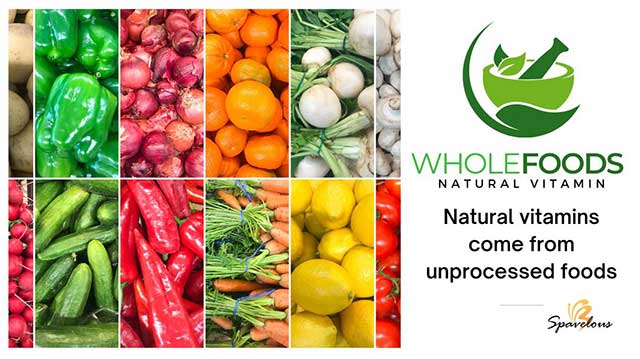
Health Benefits of Natural Vitamin
Vitamins are super important for our health. They help our bodies work properly and make us feel good. Getting vitamins from natural sources like whole foods is best for top health.
Natural vitamins come from unprocessed foods. They are better for us because they contain other good stuff. Vitamins from a lab don’t have these extra benefits. Natural vitamins help our health in many ways.
I learned how great natural vitamins are from my own life. I started eating more fruits and veggies a few years back. I felt more energetic and just better overall. It made me really believe in natural vitamins.
The Importance of Vitamins in Human Health
Vitamins are very important for our health. They are different from big nutrients like carbs, proteins, and fats. These big nutrients give us energy and help us grow.
Vitamins help our bodies work right. They do not give energy like carbs or fats. Instead, they help in chemical reactions in our bodies.
Without vitamins, our bodies cannot make energy or fix DNA. Our immune system and organ health would get worse.
Each vitamin has a special job. For example, vitamin A helps us see well. Vitamin C helps our skin and fights off sickness.
Not getting enough vitamins is bad. Not enough vitamin A can cause eye problems and sickness, and too little vitamin C can make it hard to heal wounds.
Vitamins keep us healthy and prevent diseases. Eating different foods is the best way to get vitamins, but some people might need extra vitamins from supplements.
But we should not just take vitamin pills instead of eating right. Always talk to a doctor before taking supplements.
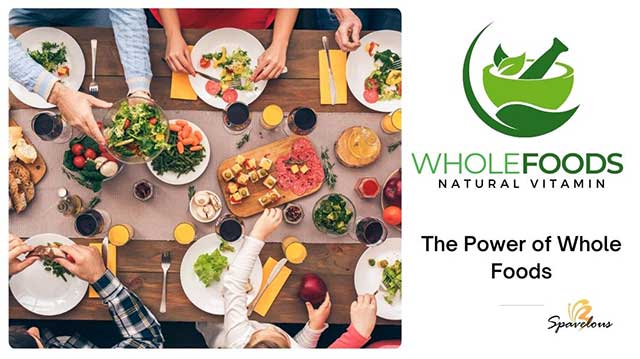
Natural Vitamins: The Power of Whole Foods
Natural vitamins are special because they come from unprocessed foods. They are much better for our health than fake vitamins. These real vitamins are found in foods just like nature made them.
Defining natural vitamins: Natural vitamins are found in whole foods. They don’t have fake stuff added. You can find them in fruits, veggies, grains, nuts, and seeds. Eating these foods means we get all the vitamins the way nature wants.
Examples of vitamin-rich foods: Eating different foods for more vitamins is good. For example:
- Vitamin A: Carrots, sweet potatoes, spinach, kale
- Vitamin B: Whole grains, legumes, fish, eggs
- Vitamin C: Citrus fruits, bell peppers, strawberries, broccoli
- Vitamin D: Fatty fish, fortified milk, eggs, sunlight exposure
- Vitamin E: Nuts, seeds, spinach, broccoli
- Vitamin K: Leafy green vegetables, cabbage, Brussels sprouts, parsley
The impact of food preparation techniques: How we cook can change vitamin levels. Boiling or heating a lot can reduce vitamins. But steaming and microwaving are better. They keep more vitamins in the food. Eating foods raw or lightly cooked is also good.
Choosing whole foods and smart cooking methods helps us use the power of vitamins. This way, we stay healthy and feel great.
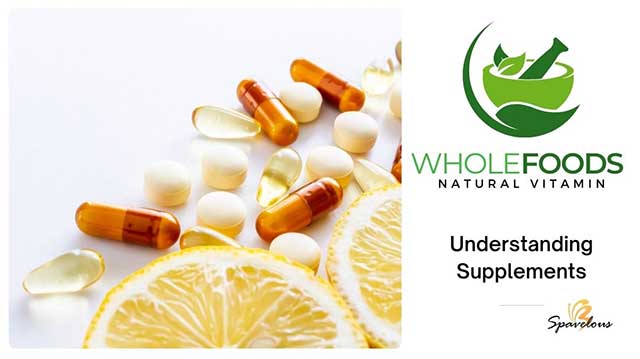
Synthetic Vitamins: Understanding Supplements
Many people today use supplements to stay healthy. But it’s crucial to know the difference. Natural vitamins come from whole foods, while synthetic vitamins are made in labs as separate nutrients.
Define Synthetic Vitamins: Those Created in a Laboratory, Often as Isolated Nutrients
Scientists in labs make synthetic vitamins. They are similar to natural vitamins but miss some parts which are found in real food.
Situations Where Supplements May Be Helpful
Supplements can be beneficial in some cases. They help when certain nutrients are lacking in food, and people with allergies or special diets might need them.
They are also useful during pregnancy or with certain health issues. They help make sure you get what you need for your body.
The Potential Issue of Over-Supplementation and Its Side Effects
Taking too many supplements can be bad. Too many vitamins or minerals can hurt you, and too much vitamin A or D can make you sick.
Talk to a doctor or dietitian before taking supplements. They can ensure that they are safe and appropriate for you.
“When it comes to supplements, moderation is key. It’s important to find the right balance between natural vitamin intake from whole foods and the use of supplements to support optimal health.”
Synthetic vitamins can help, but focusing on real food is better. Eating whole foods is the best way to get nutrients. Avoid too many supplements and ask professionals for advice for a healthy life.
The Benefits of Whole Food: Natural vs. Synthetic Vitamins
Choosing whole foods over synthetic vitamins has clear benefits. Whole foods have nutrients that work together to support health. This is something vitamins alone can’t match. Let’s look at the benefits of whole foods and the downsides of synthetic vitamins.
Nutrients in Whole Foods Work Together – The Concept of Food Synergy vs. Isolated Vitamins
Whole foods contain a mix of vitamins, minerals, antioxidants, and other compounds. These compounds work together in our bodies to improve our health. This teamwork is called food synergy, and it’s missing in isolated vitamins. Eating whole foods lets us enjoy the benefits of nutrients working together.
Take eating a carrot, for instance. It provides vitamin A along with beta-carotene, fiber, and antioxidants. These elements work together to help our body use vitamin A better, giving us more health benefits than just taking a vitamin A pill.
Whole Foods Offer Fiber, Antioxidants, etc., Missing from Supplements
Whole foods also give us fiber and antioxidants, which supplements lack. Fiber is found in fruits, veggies, grains, and legumes. It’s good for our heart, helps digestion, and keeps our weight healthy. Antioxidants in whole foods protect our cells from damage. They keep our immune system strong and lower our risk of diseases like heart disease and cancer.
Potential Bioavailability Issues with Certain Forms of Synthetic Vitamins
Bioavailability is about how well our bodies can absorb and use nutrients. Natural vitamins from whole foods are usually absorbed well. But, some synthetic vitamin forms might not be as good. For instance, synthetic vitamin E might not be absorbed as well as natural vitamin E.
Bioavailability can vary by nutrient and person. However, whole foods are more likely to give us well-used nutrients than synthetic vitamins. Choosing whole foods helps us get and use vitamins and minerals better.
In summary, whole foods are the best choice for getting essential nutrients. They offer food synergy and a mix of nutrients that work well together. They also have fiber and antioxidants that supplements don’t have. While there’s a place for synthetic vitamins, whole foods should be our main choice for a healthy diet.
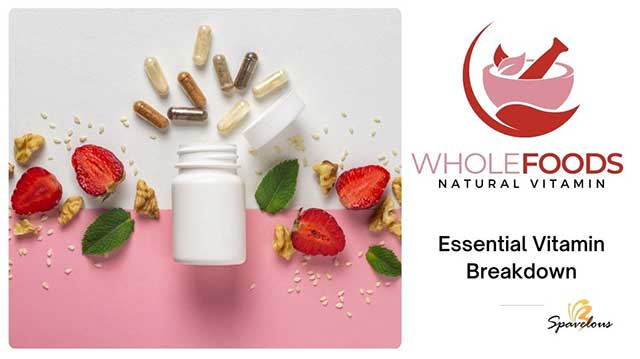
Essential Vitamin Breakdown
Vitamin A
Vitamin A is vital for our health. It helps us see well, fight off germs, and grow properly. Eat carrots, spinach, sweet potatoes, and liver to get enough of it. These foods are good for your eyes and immune system.
Vitamin B Complex
Vitamin B Complex includes many vitamins, including B1, B2, B3, B5, B6, B7, B9, and B12. These vitamins help our bodies in many ways, including giving us energy and helping make new cells.
Eating whole grains, lean meats, eggs, and vegetables provides these vitamins. They keep your energy up and your mind sharp, and they help make healthy red blood cells, too.
Vitamin C
Vitamin C is great for keeping us healthy. It helps heal wounds and makes our skin strong. Foods like oranges, strawberries, and broccoli are full of it.
Adding these foods to your meals boosts your immune system. And it helps your body heal better.
Vitamin D
Our body makes Vitamin D when we are in the sun. It’s important for strong bones and teeth. Fatty fish and egg yolks also contain it.
Getting enough Vitamin D. It helps us absorb minerals for healthy bones, which is important.
Vitamin E
Vitamin E keeps our cells healthy and fights off harm from bad molecules. It is found in nuts, seeds, and green veggies.
Eating foods with Vitamin E helps your immune system. And it keeps inflammation down in your body.
Vitamin K
Vitamin K is key for blood clotting and bone health. It is found in greens and some oils. Eating these foods helps your blood clot properly and keeps your bones strong.
Vitamin F
Vitamin F includes important fats like omega-3 and omega-6. These fats are good for your brain and heart. Look for them in fish, flaxseed, and walnuts.
Adding these to your diet supports your brain and reduces inflammation. And it’s good for your heart too.
| Vitamin | Health Benefits | Food Sources |
|---|---|---|
| Vitamin A | Promotes healthy vision, supports immune function, and aids in cell growth and development | Carrots, spinach, sweet potatoes, liver |
| Vitamin B Complex | Supports energy production, brain function, red blood cell production, and DNA synthesis | Whole grains, lean meats, eggs, legumes, leafy green vegetables |
| Vitamin C | Aids in immune function, collagen synthesis, and wound healing | Citrus fruits, berries, kiwi, bell peppers, broccoli |
| Vitamin D | Regulates calcium and phosphorus absorption, supports bone health | Fatty fish, fortified dairy products, egg yolks |
| Vitamin E | Protects against cell damage, supports immune function | Nuts, seeds, spinach, avocados |
| Vitamin K | Involved in blood clotting and bone metabolism | Leafy green vegetables, cruciferous vegetables, vegetable oils |
| Vitamin F | Essential fatty acids that support brain health and heart health | Fatty fish, flaxseed, chia seeds, walnuts |
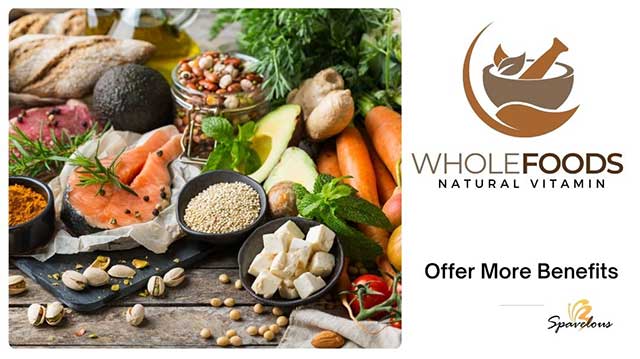
Why Natural Vitamins May Offer More Benefits
Natural vitamins from whole foods are key to good health. Whole foods have nutrients that work better together, helping our health more than taking single vitamins.
Exploring the Concept of Food Synergy
Food synergy means nutrients in foods work better together, improving how our bodies use them. Eating whole foods benefits us from this natural teamwork.
The Importance of Diverse Nutrients
Whole foods bring us many important nutrients. They have vitamins, minerals, antioxidants, and more. All these help our bodies work well, keep us healthy, and fight diseases.
Eating different whole foods gives us lots of nutrients. For example, oranges give us vitamin C, green veggies give us vitamin A, and nuts give us vitamin E. By eating these, we make sure our bodies get what they need.
Enhancing Overall Health with Whole Foods
Choosing natural vitamins from whole foods is better than just vitamins alone. Eating a variety of whole foods gives our bodies all they need to stay healthy. Whole foods have many parts that help us feel good and live a healthy life.
Advantages of Natural Vitamins through Whole Foods:
- Enhanced nutrient absorption and utilization through food synergy
- A diverse range of essential nutrients for overall health
- Promotion of immune health and reduction of chronic disease risks
- A balanced and nutritious diet
The Benefits of Eating a Balanced, Whole Foods Diet
Eating right is key to staying healthy. A balanced, whole-food diet is best for getting vitamins and nutrients, which are the main support for our body’s energy.
But getting whole foods isn’t always easy. Things like where you live, how much money you have, and what’s available can make it tough. These barriers can stop us from eating fresh, unprocessed foods every day.
One way to make smarter choices is by reading food labels. This can help us pick the best options at the store. Knowing what the labels mean lets us choose foods that are good for our health.
Food Labeling Tips:
1. Look for whole foods: Choose products that contain recognizable, unprocessed ingredients.
2. Check the ingredient list: Ingredients are listed in descending order by weight, so make sure nutrient-rich foods are listed at the top.
3. Pay attention to serving sizes: Serving sizes can vary between products, so be mindful of portion sizes and adjust accordingly.
4. Assess nutrient content: Look for products that are rich in essential vitamins and minerals, such as vitamin C, calcium, and iron.
5. Be aware of added sugars and artificial additives: Avoid products that contain excessive amounts of added sugars and artificial ingredients.
To eat well, focus on whole foods and read food labels. This ensures that our diet is full of important vitamins and minerals. Even when it’s hard to find whole foods, smart choices can support our health.
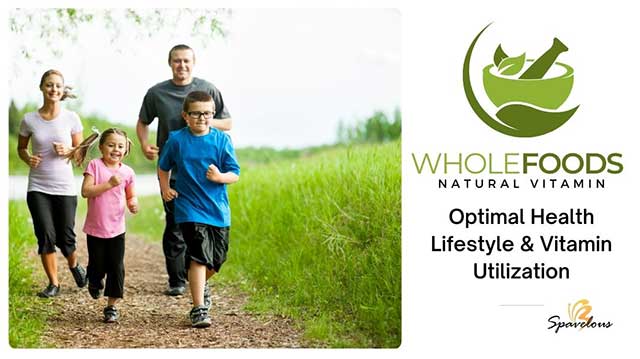
Optimal Health Lifestyle & Vitamin Utilization
A whole-life view is important to achieve the best health and use vitamins well. This includes exercise, good sleep, handling stress, drinking enough water, and getting some sun safely. Doing this helps your body use vitamins better.
Exercise
Being active is key to feeling well and taking vitamins correctly. Cardio, lifting weights, and stretching keep you fit. They also boost heart health and help your body get the vitamins it needs.
Quality Sleep
Good sleep is a must for top health and getting the most from vitamins. While you sleep, your body fixes itself and takes in nutrients better. Try to sleep 7-9 hours each night for the best healing.
Stress Management
Too much stress is bad for your health and the effectiveness of vitamins. Find calm ways to deal with stress, like mindful meditation, hobbies, or talking to friends or experts. Less stress means your body can use vitamins better.
Hydration
Drinking lots of water is vital for great health and vitamin use. Water moves nutrients around your body, helping them work. Aim for 8 glasses of water a day, more if you’re active or it’s hot.
Safe Sun Exposure (for Vitamin D)
Vitamin D is crucial, and the sun helps make it. A few minutes in the sun, early or late, works well. But be careful to avoid too much sun and prevent burns or harm.
So, living a balanced life with exercise, sleep, less stress, enough water, and some sun is best. It makes you healthier, and your body uses vitamins better. Adding these habits to your day makes life fuller and brighter.
Conclusion for Natural Vitamin Health Benefits
Natural vitamins from whole foods have many benefits. Adding whole foods to your meals gives you key nutrients for health. These vitamins work with other food nutrients to boost your health.
Even little changes to what you eat can help a lot. Choose whole foods instead of processed ones to get more natural vitamins. This choice will improve your health over time.
Want to eat more whole foods? Here are two easy recipes to try:
Recipe 1: Sunshine Salmon Salad
- Vitamins: Vitamin D (salmon), Vitamin C (bell peppers, citrus), Vitamin K (greens), Vitamin E (avocado), Vitamin A (greens)
- Ingredients:
- 4 oz wild-caught salmon fillet
- Large handful of mixed greens (spinach, kale, etc.)
- 1/2 cup chopped bell pepper (any color)
- 1/4 avocado, sliced
- Citrus vinaigrette (lemon/orange juice, olive oil, pinch of salt and pepper)
- Instructions:
-
- Cook salmon your preferred way (baked, pan-seared, grilled).
- Toss greens, bell peppers, and avocado in a bowl.
- Whisk together vinaigrette ingredients.
- Top salad with salmon, drizzle with dressing, and enjoy!
Recipe 2: Sweet Potato Power Bowl
- Vitamins: Vitamin A (sweet potato), Vitamin C (broccoli), Vitamin E (nuts/seeds), B Vitamins (quinoa), Vitamin K (broccoli)
- Ingredients:
- 1 medium sweet potato, baked or roasted
- 1 cup cooked quinoa
- 1 cup steamed broccoli florets
- Handful of your favorite nuts or seeds (almonds, pumpkin seeds, etc.)
- Optional: drizzle of tahini or a simple balsamic dressing
- Instructions:
-
- Split open the baked sweet potato.
- Fluff up the inside slightly with a fork.
- Fill the sweet potato with quinoa and broccoli.
- Top with nuts/seeds and a drizzle of dressing, if desired.
Notes:
These recipes are easily customizable. Feel free to add other vegetables, protein sources, or healthy fats.
Get creative with the dressings and flavors you enjoy!
Inspirational Sources:
Did you enjoy this article? If so, I’d love for you to join our growing community of beauty and health enthusiasts! Simply enter your email below to subscribe to our weekly newsletter. You’ll receive the latest trends, tips, and insights to help elevate your wellbeing, along with exclusive content, personalized recommendations, and special offers delivered straight to your inbox. It’s my way of continuing to spread positivity and self-care into this world. I can’t wait for you to be a part of this radiant journey!
Recommended Reads:
Quick Digest Quick Digest × This article discusses vitamin D deficiency and its symptoms and provides guidance on how to maintain healthy …
More Than Just A Grocery List For Weight Loss Are you ready to revamp your grocery list and support your weight loss …
Quick Digest Quick Digest × What Foods Are Good For You? Exploring the World of Healthy Foods This article provides a guide …
Tea and Your Health: A Simple Beverage with Profound Health Benefits Are you ready to embark on a journey towards holistic health …

